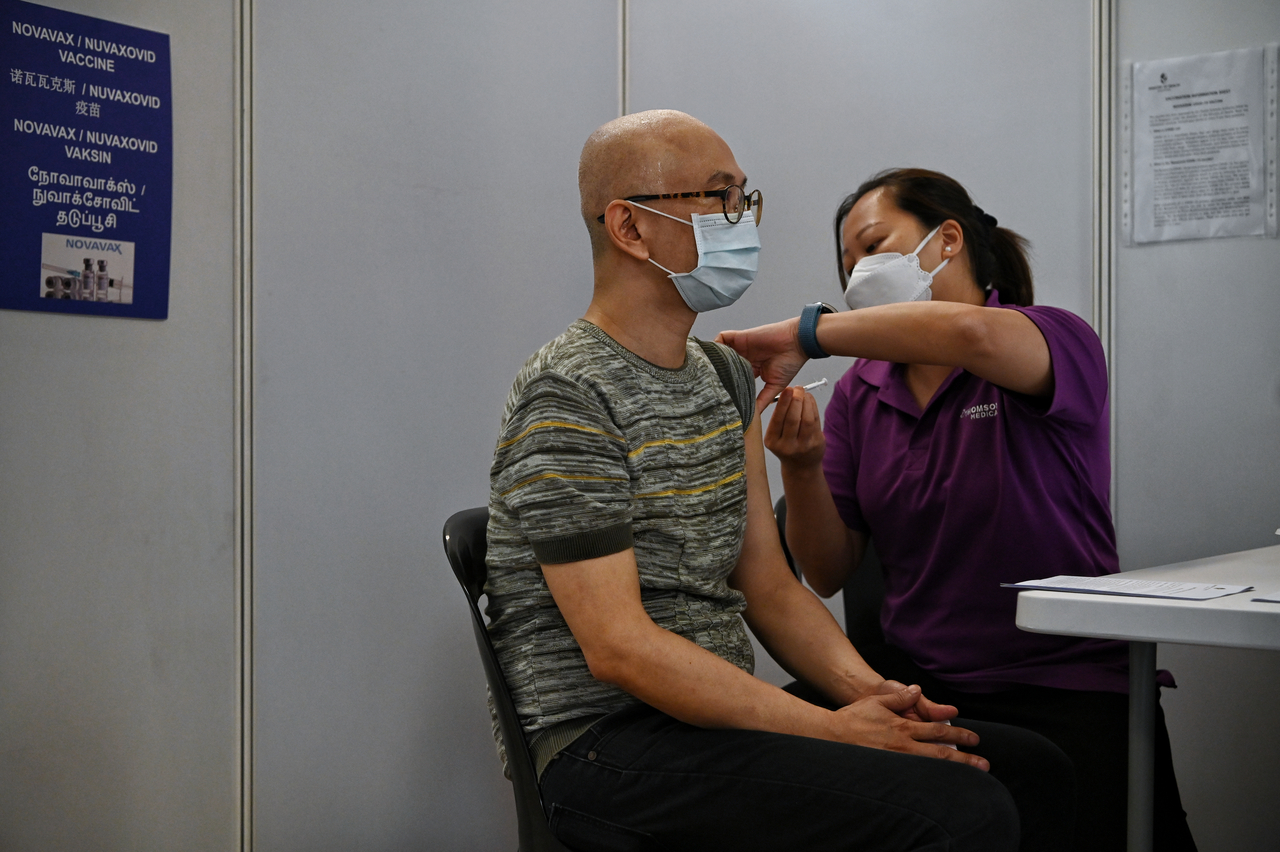Vaccinations more than halved potential global Covid-19 death toll: Lancet study
Sign up now: Get ST's newsletters delivered to your inbox

More than three quarters of the deaths averted were due to the protection provided by vaccination against severe symptoms.
ST PHOTO: KUA CHEE SIONG
Follow topic:
SINGAPORE - Vaccinations more than halved the potential global death toll due to Covid-19, as an estimated 19.8 million deaths were averted in the first year after vaccines were introduced, according to a mathematical modelling study just published in The Lancet Infectious Diseases.
These reductions were concentrated in high-income countries that relied on their vaccination programmes to relax interventions and allow SARS CoV-2 transmission to increase as they moved into a new stage of the pandemic, the authors said.
The researchers from Imperial College London estimated that 31.4 million people would have died, if no one had been vaccinated in the first year of vaccination, beginning Dec 8, 2020.
"However, because of vaccination, we estimate that 19.8 million of these lives were saved," said the study's lead author, Dr Oliver Watson.
The estimates were based on excess deaths from 185 countries and territories. China was not included in the analysis owing to its large population and strict lockdown measures, which would have skewed the findings.
The excess deaths, which are deaths that occur over and beyond what is typically expected in a year without a pandemic, could have been caused directly or indirectly by the coronavirus.
Many lower-middle income countries were not able to meet vaccine targets in the first year after they were introduced, and as a result, lost hundreds of thousands of lives.
The study estimated that 156,900 additional deaths would have been averted if the vaccination target of 20 per cent set by global vaccine-sharing initiative Covax had been reached in that time frame, and a further 599,300 deaths would have been averted if the World Health Organisation's (WHO) 2021 Covid-19 vaccination target of 40 per cent of each country's population had been reached.
Dr Watson said in a release that "if the targets set out by the WHO had been achieved, we estimate that roughly one in five of the estimated lives lost due to Covid-19 in low-income countries could have been prevented".
More than three-quarters of the 19.8 million deaths averted were due to the protection directly provided by vaccination against severe symptoms.
The remaining 4.3 million averted deaths were estimated to have had indirect protection because the use of vaccines led to reduced transmission of the virus in the population and burden on healthcare systems, thereby improving access to medical care for those most in need.
The indirect protection extended to both vaccinated and unvaccinated individuals, said Dr Watson. First, populations with high vaccination coverage will have fewer transmission events, which reduces the likelihood of an individual encountering someone with an infection, he said.
Second, individuals who are vaccinated but still become infected are likely to be less infectious than if they did not have a vaccine. This reduces how likely they are to lead to onward infections, he added.
The latest study is the first to estimate the impact of Covid-19 vaccinations on a global scale and the first to assess the number of deaths averted both directly and indirectly.
"Such studies are absolutely necessary in health policy to determine the extent of preventable morbidity and mortality," said Professor Teo Yik Ying, dean of the Saw Swee Hock School of Public Health at the National University of Singapore.
While these figures are at best an estimate, they nonetheless highlight the vital contributions of vaccines in saving lives.
"More importantly, it also demonstrates the collective benefit to the world if the challenge of inequality in vaccine access and delivery could have been successfully addressed," he said.
The true death toll of the pandemic is unclear, but excess deaths have far outstripped official fatalities. Estimates released by the WHO in May showed that the excess deaths in the first two years of the pandemic were nearly 15 million.
Singapore saw about 1,535 excess deaths in 2021, after accounting for the country's ageing population, and 52 per cent or 804 deaths were due to Covid-19, Health Minister Ong Ye Kung said in May.
Deaths due to Covid-19 will continue to accrue, as there will be people who will succumb to the complications arising from an infection. This is regardless of whether immune levels are waning or not, said Prof Teo.
In a comment linked to the study, Professor Alison Galvani from the Yale University School of Public Health in the United States who was not involved in the research, said: "The inequitable distribution of vaccines has prolonged the pandemic, and exacerbated the probability and frequency of the emergence of variants of concern. Additionally, many of these novel variants evade host immunity, thereby eroding vaccine efficacy, as well as increasing transmissibility."
The "provision of vaccine doses from high-income to lower-income countries is therefore not only moral but also pragmatic", she said.

